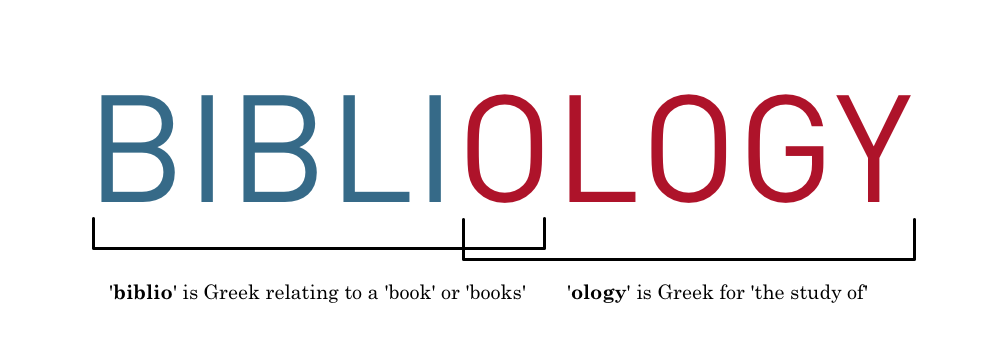
If you were to close your eyes and imagine the most exciting topic you could ever study, chances are bibliology isn’t the one that would come to mind. When I found out it was one of the first classes I had to take during my freshman semester at Ethnos360 Bible Institute, I was less than thrilled. Bibliology? Really? How about something more exciting, like Romans or Galatians? Studying bibliology conjured up images of dry dusty bookshelves and old scholars spending hours pouring over the details of decrepit scrolls. Great fun.
However, while Bibliology started as simply a necessary class, I began finding true excitement and awe instead of the boredom I had expected.
What Is Bibliology?

Bibliology might look like a big word, but really it’s just the doctrine of the Bible. That ending, ‘ology’ means ‘the study of’, and the beginning, ‘biblio’ means ‘relating to a book or books.’ ‘Biblio’ is derived from the Greek word used for ‘papyrus’. Papyrus was the type of “paper” God’s Word was originally written on – scrolls upon scrolls that were carefully copied by scribes through the centuries. But, more on that topic in a later post. The plural form of this Greek word was “biblia” and it meant “the books”.
So when we study Bibliology we are studying the book – the Bible – how it came to be, and what it says about itself.
Why Do We Need Bibliology?
Bibliology gives us answers, proofs, and a historical record of where the Bible came from, how it was written, and how it has been preserved until now. It affirms our belief in the authenticity and validity of Scripture. In other words, we need Bibliology because it gives us confidence that the book we are believing and basing our lives on is legitimate.
A subject that may seem all dry facts at first glance becomes crucial to our confidence as Christians in today’s world.
“When we study bibliology we can be confident that what we have today is the Word of God; it hasn’t been changed over the ages.”
– Jeb, Ethnos360 Bible Institute alumni
Here at Ethnos 360 Bible Institute, we believe all Christ followers need at least a basic understanding of Bibliology for three reasons:
-To understand both how and why God’s Word came to us.
-To have absolute confidence that the Bible is indeed the Word of God, and to be confident that we can live and die by faith in God’s Word and not be disappointed in the least.
-To enable us to remain true to the faith with assurance as we interact in a world of skeptics who are sometimes hostile to our faith.
Bibliology Basics
When learning about the Bible it’s important to start with the basic facts and lay a foundation. What is this book? Who wrote it? Where did it come from?
The Bible says this about itself:
“All Scripture is inspired by God and is useful to teach us what is true and to make us realize what is wrong in our lives. It corrects us when we are wrong and teaches us to do what is right. God uses it to prepare and equip his people to do every good work.” -2 Timothy 3:16-17 NLT
The first bibliology basic fact is that Bible is God’s thoughts and words to us, it’s purpose is to communicate His truth to man.
Secondly, the Bible was written by forty different authors over a time period of 1600 years. These writers were from separate backgrounds, with varied upbringings, life circumstances, and personalities, which lends to the different writing styles in different books of the Bible. The most important thing about these writers and the common tie between them is that they were each inspired by God to write what they did, when they did. They were the human instruments through which God has spoken to all mankind. Even though they were all different and most never knew any of the others, the unity of what they express is amazing. The theme of the Bible that each of the writers contributes to is God’s glory, which is manifested fully in the life and lordship of Jesus Christ.
Structurally, the Bible is divided into two major parts, the Old Testament and the New Testament. The Old Testament took the longest to write – about a 1000 years, and contains 39 books. In between the two parts was a gap of time where no Scripture was written, and then came the New Testament, taking 60 years to write and made up of 27 books.
So What’s Next?
We believe the Bible is absolutely perfect and true in every way. God thought out and wisely wrote and preserved His Word. The truth that He reveals about Himself and Jesus Christ is worth living and dying for. As we continue to study further aspects of Bibliology, we’ll find more and more reason to believe that it’s message is the one avenue to true life.
Anna Wishart is a graduate of Ethnos360 Bible Institute and continues to seek ways to be involved with missions through writing. She currently lives in Winchester, Virginia, and enjoys biking, art, friends, the mountain views, and attending Fellowship Bible Church.



Thank you for such a powerful teaching that really makes one come to know better where the word of God was written and it’s purpose to human kind.